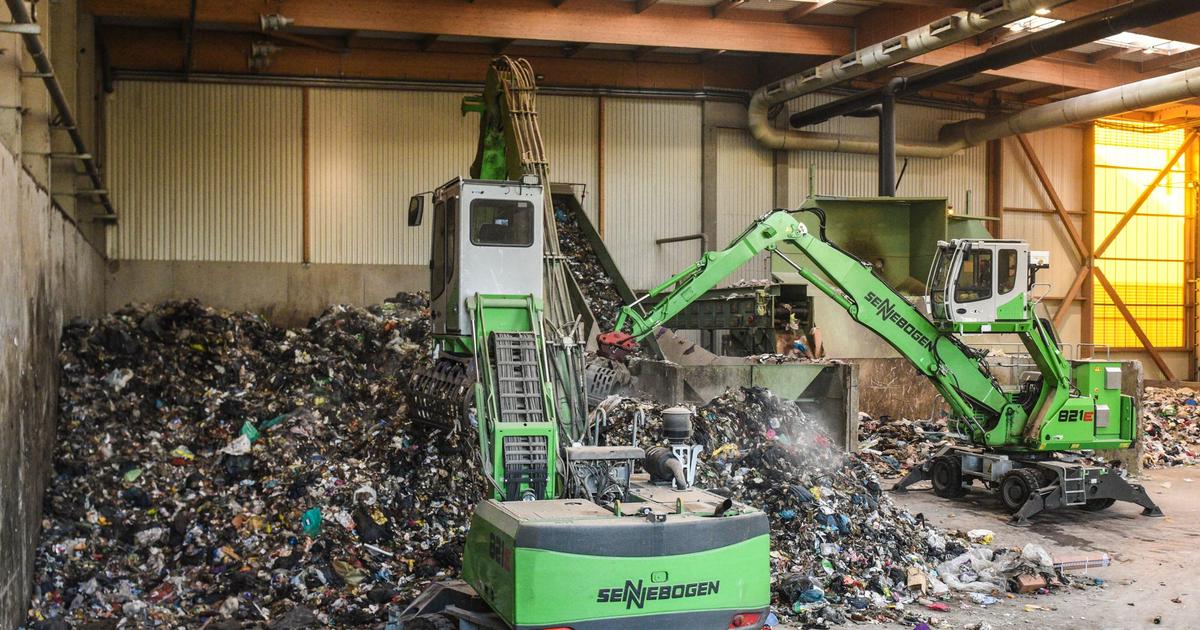Julieta Fierro, Mexican physicist, astronomer and popularizer, in an interview for EL PAÍS, in Mexico City, Seila Montes
Observing a galaxy is like listening to a song in Finnish, says Julieta Fierro: "Even if you don't speak that language, you may like the song." This is physics, this is the universe, knowledge as intricate as it is poetic to which this Mexican astronomer with an international reputation adds humor to it. He was born in Mexico City 73 years ago: 40 books published, three honoris causa, a chair at the Mexican Academy of Language; schools, planetariums, scientific societies bear his name. She has been president of the Education Commission of the International Astronomical Union and is a senior researcher at the Institute of Astronomy of the National Autonomous University of Mexico (UNAM). All that science that is under his mane of moon uses it to spread without fatigue,he does not mind wasting a few minutes explaining to flat-earthers that they are very wrong. In his words is all the planetary poetry. If the interview is prosaic, blame the questions.
"Can you tell me about yourself, I'm a normal lady," she says.
But what it shows at every moment is not exactly normality, but a friendly everyday life devoid of petulance.
On several occasions he will get up from the sofa to search inside the house for objects with which to demonstrate how eclipses operate, or how science is far from the absolute truth.
For that he will play with the journalist and the photographer, as if he were in a school explaining to infants.
At the end of the talk, Fierro prepares for the photos: "I'm going to brush my hair and pee."
Later we will see the importance of the pee, even that of the dinosaurs.
Ask.
How do you imagine an extraterrestrial being, with antennas?
Answer.
It depends on whether you are ready or not;
if it is a bacteria type, they can grow, they don't even need stars.
Jupiter has 92 satellites and one has ice and a sea below the ice, there could be underwater life, and there are worlds like Jupiter that go around without stars, they are called free floats.
But to have intelligence you need several things, a minimum size to develop neurons, tentacles or a trunk to be able to manipulate nature, and it is thought that they should at least have two or three kilos of weight and senses, it depends on the place.
Q.
Do you imagine it then as an octopus?
R. It
could be, they are very intelligent, what happens is that they live little, a year.
They play, they can count, they have fun, they explore aquariums, they cheat ...
P.
And they predict the winner of the soccer world cup.
Let's go back to Earthlings: humans are stardust.
R.
[Points a finger at an invisible particle on his wrist].
Look, see a proton, veil, it has been in the universe for 13.8 billion years.
P.
There, on the wrist?
A.
Yes. A star has entered, that proton merged to make carbon.
Q.
But is it the same one that dropped a star when it died billions of years ago?
A.
Yes, the same.
Each proton was formed 13.8 billion years ago, there was pure hydrogen and helium, the stars grabbed the helium and formed carbon 12, oxygen.
And what are we made of?
From what stars make, they died and threw that into space.
P.
But some stars died before and others later, my proton may be older and yours more modern.
A.
Sure.
We are made of carbon, nitrogen, and oxygen because that is what stars make the most.
P.
If the galaxies are losing fertility, as they say, and produce fewer stars, the existence of the human being hangs by a thread, even if it is a thread of millions of years.
R.
Right now we exist thanks to those stellar explosions, the sun will also evaporate and go into space and mix with other clouds and another solar system will form with our matter, because we are all recycled, you have molecules of Christ and Barabbas and Nero, because we all pee and the atmosphere carries gases ... we all have atoms that are millions of years old.
You have atoms that were once in a dinosaur.
Julieta Fierro shows a replica of a pre-Hispanic codex Seila Montes
Q.
We are a recycled Barabbas!
R.
Sorry, I should have said nothing more about Christ, hahaha.
P.
Best Barabbas.
R.
Bad guys are more interesting characters, right?
P.
They say that the universe dies, for that reason of the infertility of the galaxies.
R.
There is everything, we live in a universe that has been evolving 3.8 billion years and many things have happened.
The universe began very dense, where there was more matter the first stars were born.
There were major outbreaks.
As the universe expanded more and more, the density of matter decreased, but there are 100,000 million galaxies and each one has 100,000 million stars.
Tiny, gassy galaxies keep forming, joining each other and getting bigger.
For example, the Milky Way is going to merge with Andromeda in 500 million years, and the two galaxies are going to have more outbursts of star formation until they run out of gas.
At present there are fewer outbreaks, yes, but our galaxy is still very active and its satellites too.
P.
Then you die or you do not die.
A.
The energy of the universe is degrading, and the black holes of the universe will evaporate when the universe has a 1 with 70 zeros in years.
The protons will disintegrate when the universe has a 1 with 32 zeros, that is, with a 1 with 100 zeros the universe will be cold, pure radio waves, there will no longer be visible light, exhausted stars, evaporated holes, disintegrated protons.
P.
How scary.
And will another unknown universe happen to that?
A.
Before it was thought that our universe was like a ball, it expands and falls, expands and falls, an oscillating universe, but this time it is going to expand so much that it will expand forever.
But there are, in addition, other universes, which arise out of nowhere.
The vacuum is always full of energy, and that energy varies, if a planet moves, gravity changes, if a magnetic field changes, so does the energy ... The fields of physics ... From there a universe like ours can arise, in this moment could be generating, but it is not that ours ends and another one arises, they can exist in parallel and be different.
Q.
Doesn't thinking about other universes cause you anxiety?
R.
Oh, no, how wonderful, I love quantum mechanics.
Q.
The James Webb Telescope was successfully launched this Christmas Eve.
With him we are going to see further back than we saw before, more past.
Do astronomers look back to know where we came from or also where we are going?
Q.
What science wants is to advance knowledge, the past, the future and what happened in the meantime, we are curious, James Webb wants to know the evolution, the stages.
Q.
What do we get for the present?
R.
Well, Andromeda and the Milky Way are going to merge, for example.
Looking back we know how the future is going to behave, that the sun is going to live another 4.5 billion years, for example, that it is not going to go out tomorrow.
Q.
There will always be a universe, so
R.
Well, it is the idea of right now, but science by definition does not have the truth, Gödel's theorem shows that the truth does not exist.
Now we have the gravitational waves to know, it is as if they gave us a new sense to explore, another way, without seeing, smelling or touching, that is a gift of this century and with that we will be able to explore the universe more completely, but our ignorance will continue.
P.
The truth does not exist.
Well, religion will say: I'll put it on.
A.
Well, yes, but there are harmful truths, for example that Adam is happy and all the blame is on women.
It is very comfortable for a man to believe in that religion, right?
Your partner is to blame for everything for eternity.
P.
Mexico is a very superstitious country, a large part of the population has found it difficult to believe that the coronavirus was a scientific truth.
How does an astronomer feel about telling these things that are almost science fiction, making a population understand truths, although incomplete?
A.
Many experiments have been done and people can live with two different world systems.
In science museums they ask children how man came about, and they talk about cells and such.
If at the exit a religious leader asks them the same thing, they say: God created it.
Q.
What paranoia.
We can live with two truths.
R.
Exactly and, depending on the context, apply one or the other, and that is the best that science can aspire to.
We cannot compete with religion, only respect it, it is too strong.
P.
For our religious side?
R.
And for the people who take advantage of religion in their favor.
For women it is disastrous, sex is bad, it is good to suffer, cupa, we are the witches.
There are no more or less reasonable female deities.
P.
Mexican ancestors were great astronomers.
R.
The great cultures of antiquity have used the stars to count time, clocks, the night, the months of the year.
That helped organize social life.
Markets, merchandise trade, pyramid building, and the time of being in the country had to be carefully planned.
The Mayans built pyramids and the astronomers knew what day it was and how many days it would take to bring feathers, pigments, etc. to the market in Oaxaca.
P.
But all civilizations had that need to establish a calendar, however in Mexico they were advanced students ...
A.
Yes, we have an advantage.
Astronomy started as a science in Europe, but they are far north and Mexico is closer to the equator, where you see sections of the sky that you don't see in the northern hemisphere, and in December it is clear in Mexico.
P.
The Mayans started with an advantage.
A.
Yes.
P.
The Webb has cost 9,000 million.
Does society understand this expense?
R.
Basic science does not pretend to improve daily life, but to advance knowledge.
Basic scientists look for tools to interrogate nature in the best way.
Julieta Fierro at her home in Mexico City Seila Montes
Q. You
are a few questions.
R.
You too, haha.
We have the same profession with different objects of knowledge.
P.
Terraplanistas, pandemics that plague the earth, anti-vaccines.
This smells like middle age.
A.
Flat Earthers gained strength with the
Game of Thrones
series , where there is a wall of ice at the end.
It is very nice to think that the Earth is flat and is surrounded by that wall of ice.
All the great cultures thought that the Earth was flat.
The Babylonians realized the error when they saw the shadow of the Earth on the Moon, but Christopher Columbus did not tell Chabelita (sorry): 'look at the shadow of the Earth, there are two eclipses a year'.
Nobody bothers to think that the shadow of the earth is not a tortilla, it is not a taco, an enchilada.
P.
But that in the XXI century all this group of flat Earthers arises ...
R.
It is a super business, everything is magical, astrology ... We live in a society of guilt and it is comfortable to look for strange justifications.
And it also gives a certain glamor, when they invite us to TV and astrologers go because it is fascinating, with those clothes, those wigs.
Instead, the astronomer arrives and they ask you the distance to Pluto in centimeters and you keep calculating like the idiot who no longer has that known distance.
Q.
What is your favorite star?
R.
I like the universe, the whole, this thing that worries you and also fascinates me, to think that we know so much about something so vast and that with this new telescope we will see up to 13,000 million light years away, the birth of the universe .
Q.
That can throw up surprises.
That waits?
R.
We do not know, when they launched Hubble, we organized a congress in Atlanta to see the results, and it did not come out until years later and by the time they sent it it was out of focus and from now on they fixed it ... It was myopic, like me.
It was used to view nearby objects, and now it has lived so long that it is already taking pure pretty pictures for wondering people.
That is the farewell to Hubble.
Q.
Now we will see the first light of the universe, the great birth.
Or are they just headlines?
A.
Yes, they are headlines.
The universe emerged from a vacuum and energy was released.
70% is energy and light is part of it.
Then, of the remaining 30%, 26% is dark matter, a matter that generates gravity but not light, does not absorb it, does not reflect it, does not emit it.
But there was light before.
The first light.
There was a time when the early universe began to expand, but light bounced from one place to another.
Only when the universe reached 380,000 years of life did it become transparent and light could travel, so it is the oldest we can see.
Before, even if there was a ray of light that meant I'm here, I'm going to get to you, I couldn't get out.
The universe then was red, like the sun more or less, red and opaque.
Subscribe here
to the
newsletter
of EL PAÍS México and receive all the informative keys of the current situation of this country















